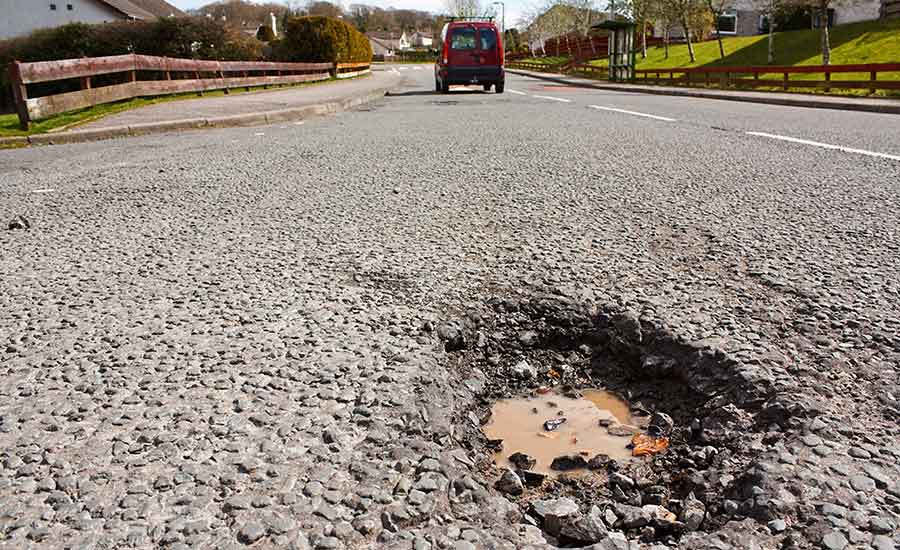The Importance of Pothole Repair: Health Impacts of Pothole-Related Accidents
by siteadmin

Potholes are more than just nuisances on the road; they pose significant risks to both drivers and pedestrians. Beyond causing vehicle damage and traffic disruptions, potholes can lead to accidents that result in severe injuries or even fatalities. In this blog post, we’ll delve into the importance of pothole repair and explore the health impacts of pothole-related accidents, highlighting the urgency of proactive maintenance measures.
Understanding the Risks of Potholes
Potholes are depressions or craters in the road surface, typically caused by the combined effects of weathering, traffic loads, and water infiltration. These road hazards can vary in size and depth, posing dangers to motorists, cyclists, and pedestrians alike. Some of the common risks associated with potholes include:
- Vehicle Damage: Potholes can cause tire blowouts, bent rims, misalignments, and suspension damage, leading to costly repairs for vehicle owners.
- Loss of Control: Hitting a pothole at high speeds can result in loss of control of the vehicle, increasing the risk of collisions with other vehicles or roadside obstacles.
- Pedestrian Falls: Pedestrians may trip or fall into potholes, especially if they are obscured by water, debris, or poor lighting, leading to injuries such as sprains, fractures, or head trauma.
Health Impacts of Pothole-Related Accidents
Pothole-related accidents can have serious health consequences for individuals involved:
- Whiplash and Neck Injuries: Sudden jolts caused by driving over potholes can result in whiplash injuries, causing pain, stiffness, and restricted movement in the neck and upper back.
- Back and Spinal Injuries: The impact of hitting a pothole can jolt the spine, leading to strains, sprains, or even more severe spinal injuries such as herniated discs or fractures.
- Head Trauma: Drivers and passengers may strike their heads on the vehicle’s interior during pothole-related collisions, resulting in concussions, contusions, or traumatic brain injuries.
- Broken Bones and Fractures: The force of hitting a pothole can cause occupants to be thrown against the vehicle’s interior, leading to fractures or broken bones in the arms, legs, ribs, or pelvis.
- Psychological Trauma: Pothole-related accidents can cause psychological distress, including anxiety, depression, and post-traumatic stress disorder (PTSD), especially for those involved in severe or fatal accidents.
The Importance of Pothole Repair
Given the significant health risks associated with pothole-related accidents, prompt pothole repair is essential for maintaining road safety and protecting public health. Here’s why addressing potholes is crucial:
- Preventing Accidents: Repairing potholes promptly reduces the risk of accidents caused by vehicles swerving to avoid them, losing control on impact, or colliding with other vehicles or obstacles.
- Minimizing Injuries: By eliminating or reducing the presence of potholes, road authorities can help prevent injuries to drivers, passengers, cyclists, and pedestrians, reducing the burden on healthcare systems and emergency responders.
- Preserving Infrastructure: Regular maintenance and repair of potholes help preserve the integrity of road infrastructure, prolonging the lifespan of roads and reducing the need for costly repairs and reconstruction in the long run.
- Enhancing Road Quality: Addressing potholes improves the overall quality of road surfaces, enhancing driving comfort, reducing vehicle wear and tear, and improving fuel efficiency for motorists.
Preventative Asphalt Maintenance
Preventative asphalt maintenance plays a crucial role in addressing potholes and maintaining road safety. Key strategies include:
- Routine Inspections: Regular inspections allow authorities to identify and prioritize pothole repair based on severity and location.
- Prompt Repairs: Rapid response to reported potholes ensures timely repair, minimizing the risk of accidents and injuries.
- Surface Treatments: Applying protective sealants and surface coatings can help prevent water infiltration and mitigate the formation of potholes.
- Pavement Rehabilitation: Investing in pavement rehabilitation projects, such as resurfacing or reconstruction, addresses underlying structural issues and improves overall road quality.
Conclusion
Potholes pose significant health risks to road users and can lead to serious accidents and injuries if left unaddressed. Prompt pothole repair is essential for maintaining road safety, preserving infrastructure, and protecting public health. By prioritizing preventative asphalt maintenance measures and investing in timely repairs, authorities can minimize the incidence of pothole-related accidents and create safer, more resilient road networks for communities to travel.
Eager to expand your knowledge of asphalt paving? Here’s another insightful article crafted just for you! Mastering the Art of Asphalt Paving
Potholes are more than just nuisances on the road; they pose significant risks to both drivers and pedestrians. Beyond causing vehicle damage and traffic disruptions, potholes can lead to accidents that result in severe injuries or even fatalities. In this blog post, we’ll delve into the importance of pothole repair and explore the health impacts…
Recent Posts
- Balancing Act: Environmental Impact and Sustainability in Asphalt Paving
- Smooth Moves: Asphalt Paving Maintenance Strategies for Sustaining Smoothness
- Innovating Asphalt Paving: Exploring Advanced Asphalt Mix Design Methodologies
- The Importance of Pothole Repair: Health Impacts of Pothole-Related Accidents
- Understanding Chemical Exposure and Its Impact on Asphalt Degradation
